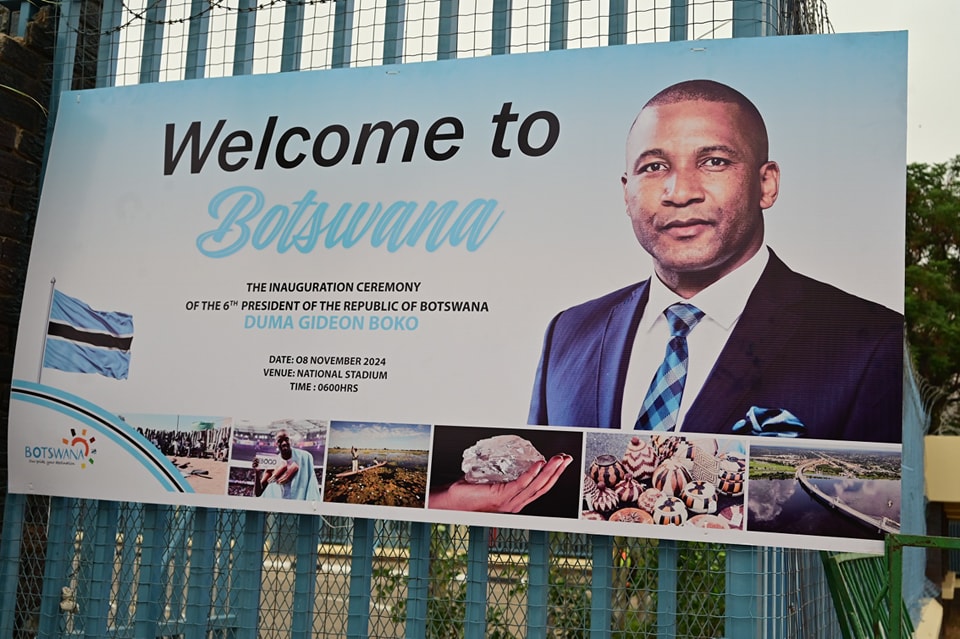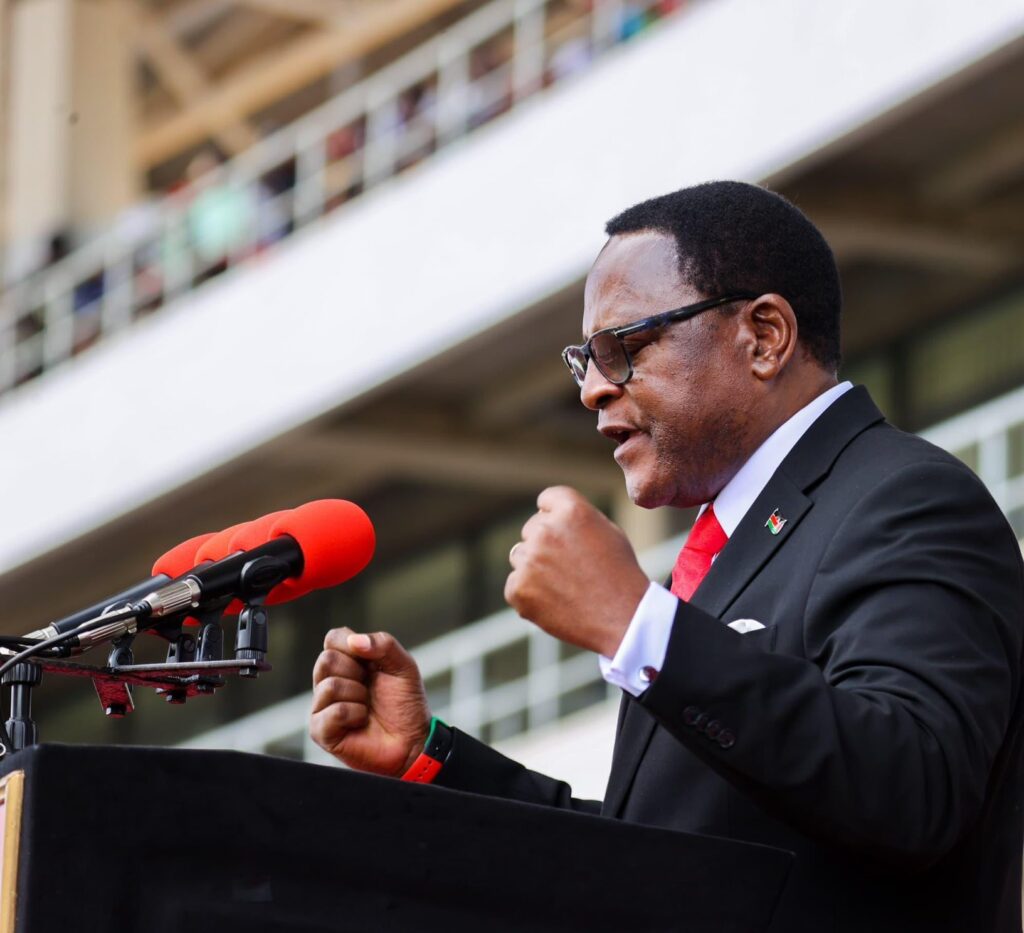When Advocate Duma Gideon Boko, President of Botswana, delivered his address during a State Banquet hosted in his honour in Lilongwe, his message was simple but seismic.
In recounting his journey to the presidency, Advocate Boko offered Malawi more than a diplomatic courtesy, he handed down a lesson in democratic maturity that should haunt the conscience of Malawi’s opposition party the Democratic Progressive Party (DPP).
Advocate Boko reminded us that in functioning democracies, power is not a birthright, it is a privilege earned and surrendered with dignity when the people choose otherwise.
He spoke of how, after winning the presidency last year by unseating a party that had ruled Botswana uninterrupted for 58 years, the outgoing president Mokgweetsi Eric Keabetswe Masisi did not sulk, did not incite unrest, did not cast doubt on the system.
Instead, Masisi conceded defeat, gracefully and publicly, even calling his opponent multiple times including once before the media.

That singular act of democratic decency puts to shame Malawi’s DPP, which five years after its defeat, continues to operate as if the State is their inherited property, a divine right they were unjustly denied.
Since losing the 2020 presidential rerun, the DPP has refused to evolve, reflect, or even accept reality. Their president Arthur Peter Mutharika still has not conceded defeat. Not once. Not even symbolically.
Since 2020 elections results, APM has never acknowledged that President Dr. Chakwera won the elections. He refused to participate meaningfully in the transition. APM refused to concede, and to this day, he has never publicly accepted that he lost. Not a statement, not a congratulation, not even a token nod to the outcome.
Instead, Mutharika has spent the past five years sulking in silence, uttering statements filled with bitterness, spewing claims that he was “robbed” by the courts, and never once accepting that he lost because the people rejected him.
Now, in Mutharika’s absence, and amid his clear cognitive and physical decline, the most dangerous elements of the DPP have risen to power.
Alfred Gangata, a man with a questionable educational background and a pending criminal case for using a fraudulent MSCE certificate—a proven fraudster is now DPP Vice President for the Central Region.
Norman “Pythius Hiwa” Chisale, Mutharika’s former bodyguard turned kingmaker, used a stolen Junior Certificate to gain entry into the Malawi Defence Force. While facing corruption and money laundering charges, he has become one of the most feared but least trusted operatives in the party.

These are the men now setting the tone for the DPP. Thugs in suits.
What’s more dangerous is their emerging strategy. Manufacture chaos now, discredit the elections later.
The DPP knows it’s heading for defeat. It hasn’t rebranded. It hasn’t offered new policy. Its rallies are filled with violent talk, not vision. Its leaders speak in threats, not programs. So instead of reforming, they are now actively trying to set the stage for rejecting the September elections outcome, unless, miraculously, it favors them.
Going towards September, like a bad playbook borrowed from authoritarian regimes, the DPP is already laying the groundwork. They speak of a “rigged system,” a “compromised MEC,” a “biased judiciary,” and an “unfair playing field.”
Yet these are not genuine concerns. These are rhetorical sandbags to cushion the fall when the voters reject them again. The narrative isn’t based on truth, it’s strategic dishonesty, designed to achieve one goal: set the stage to reject any election outcome in September that does not go their way.
The irony is this: the DPP knows they are not ready for September. The party still carries the baggage of corruption, brutality, and elitism that led to their downfall.
Their front-line operators of Gangata and Chisale represent the very worst of what Malawi should fear: leaders with no intellectual capital, no service record, and no loyalty to democratic values.
So what do you do when you have no fresh ideas, no credibility, and no message? You attack the system. You delegitimize the electoral process. You make voters believe their voice doesn’t matter. And when you lose, as expected, you scream “rigging!”
That is what the DPP is doing. They are not preparing to win elections. They are preparing to reject the results.
DPP is not new to using whatever brutal and savagely means to be in power.
From the moment it first assumed power under President Bingu wa Mutharika, the DPP has shown that it views democracy not as a process of contestation but as a game of entitlement. It sees the presidency not as a service to the people but as property of the party.
In 2014, APM returned to State House through a deeply controversial election. Reports of ballot tampering and mismanagement were widespread, but his victory was eventually accepted by the opposition for the sake of peace.
2019 shattered all illusions. That year’s election was one of the most disgraceful in Malawi’s history. Tip-Ex became the symbol of electoral theft. Tally sheets were doctored. Result forms were altered. The whole election was a mockery of democratic practice.
Eventually, the Constitutional Court annulled the election, a rare but legally sound decision that restored public confidence in the judiciary. That court ruling was celebrated across the African continent and globally. Malawi stood tall as a beacon of democratic correction.
But the DPP’s response? Denial, defiance, and disdain.
They refused to acknowledge the verdict.
Some DPP sympathizers, desperate to spin Advocate Boko’s remarks, claim he was warning President Dr. Chakwera not to cling to power after September. That misrepresentation is not just dishonest, it’s laughable and ironic.

Since assuming office, President Dr. Chakwera has demonstrated restraint, respect for the Constitution, and submission to judicial authority, even when it’s politically inconvenient. He has not fired judges. He has not banned opposition rallies. He has not deployed the military to settle political scores.
His administration has faced protests, legal challenges, and criticism, and he has absorbed all of it with democratic maturity.
So if Advocate Boko’s message was a cautionary tale, it wasn’t for Dr. Chakwera, it was for parties like the DPP, who still operate under the illusion that losing power is illegitimate.
The DPP is not acting like a party preparing to govern. It is acting like a party preparing for civil unrest. That’s not leadership, it’s political terrorism wrapped in victimhood.
Advocate Boko’s story is a powerful antidote to this toxicity. Here is a man who challenged a deeply entrenched regime and won. But what made his victory meaningful was not just his campaign, it was the grace with which the losing party stepped aside.
That’s the democratic standard.
And here is the contrast: Malawi’s opposition refuses to even accept that it lost, five years later.
Even in opposition, the DPP still behaves as though the State belongs to them. Their sense of entitlement is so deep that any electoral loss must be fraudulent, any ruling party must be illegitimate, and any process they do not control must be flawed.
This is what Advocate Boko’s message is all about. Until the DPP accepts this fundamental truth, they will remain unfit for leadership. Because democracy is not just about how you win, it’s about how you lose.








